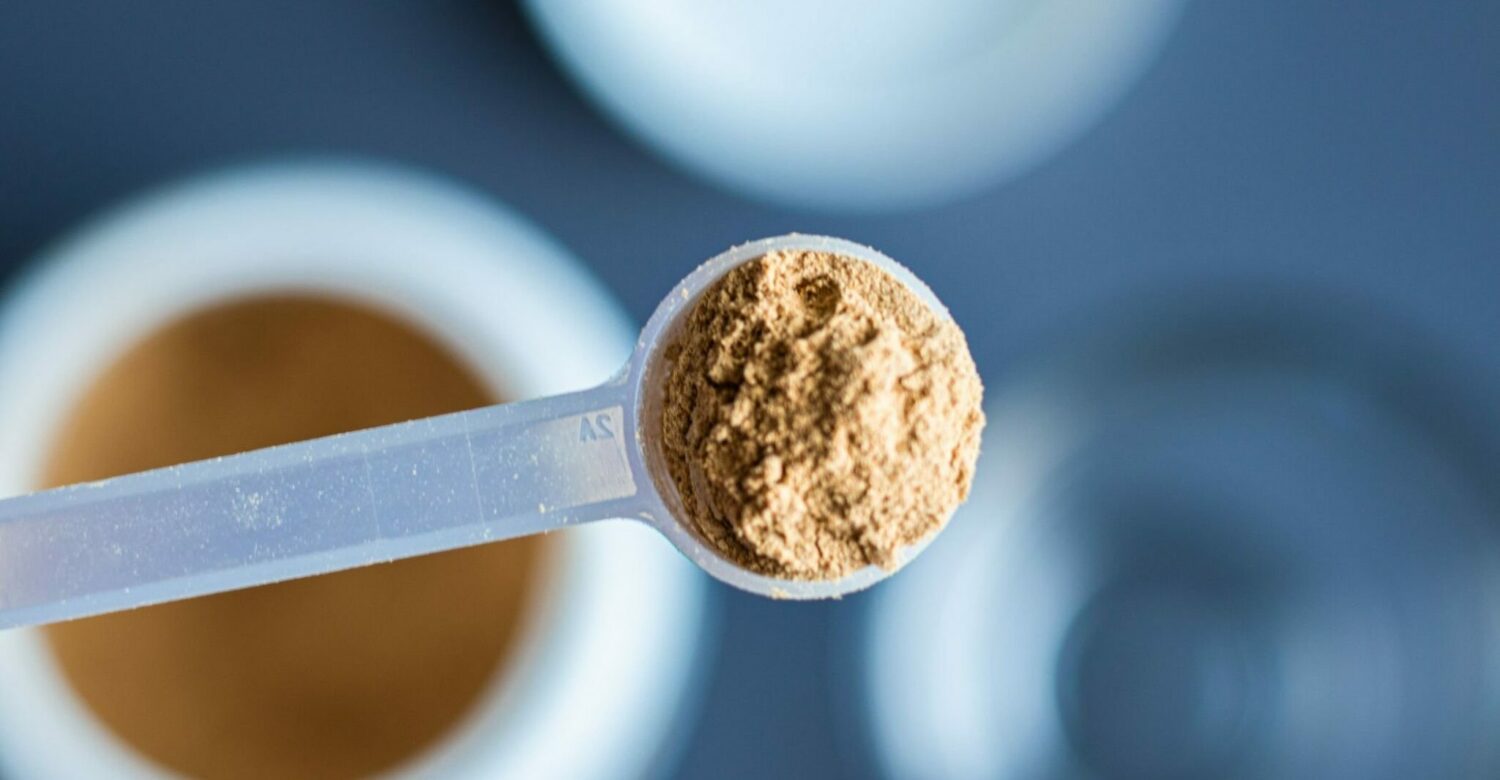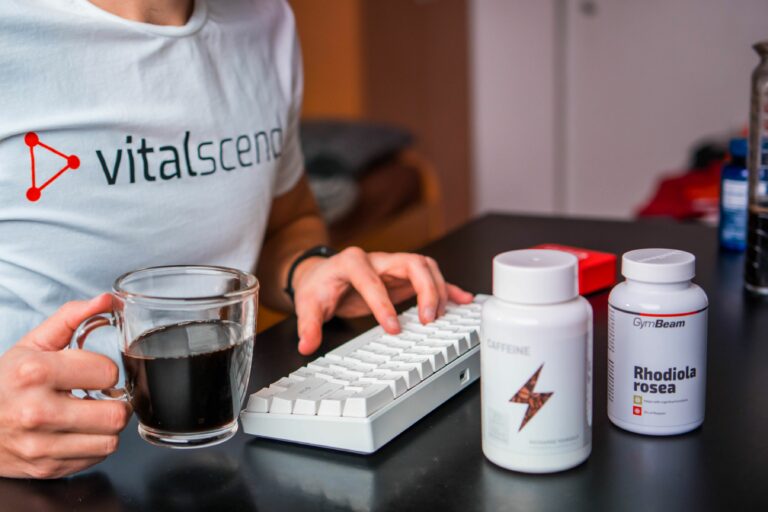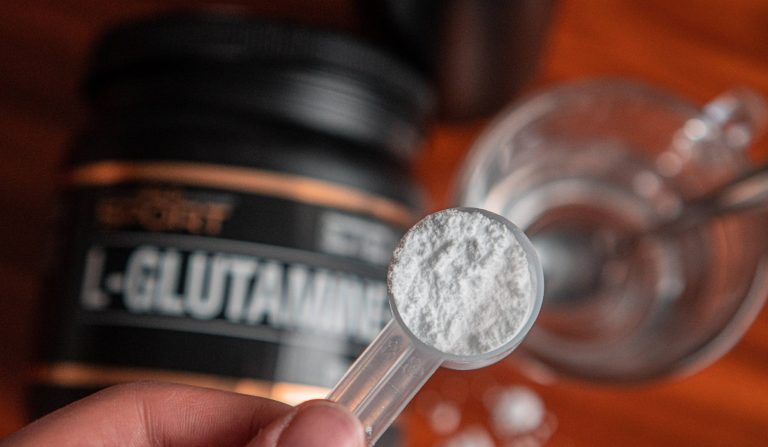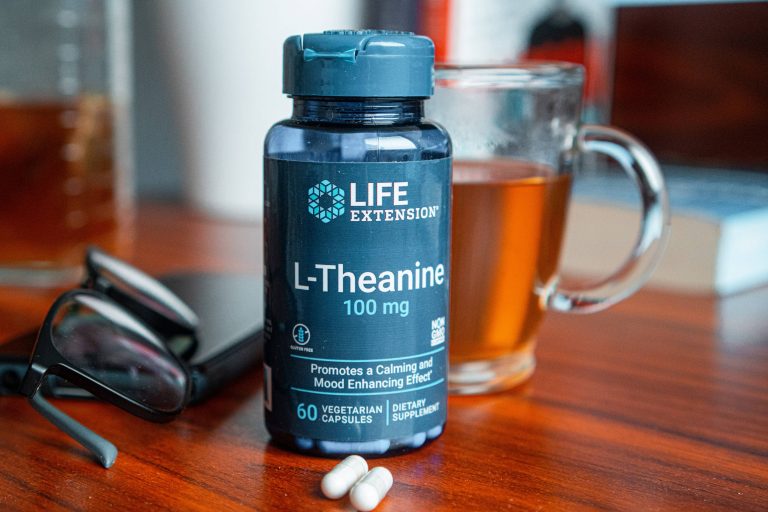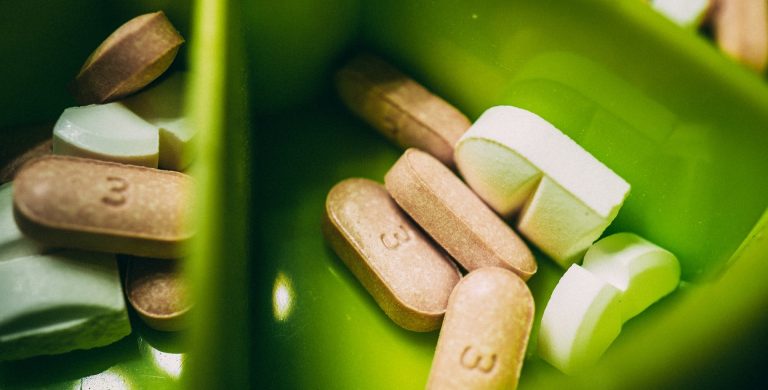Ashwagandha Root Benefits: Energy, Libido, Hormones, Bones, and Muscle
Withania somnifera, also known as Ashwagandha, Winter cherry, or Indian ginseng is a plant from Solanaceae family. Ashwagandha root benefits range from hormone balancing, to libido and energy boost.
The name comes from combining Ashva, which means horse and gandha, meaning smell. This name is associated to its strong odor. By its traditional classification, it is categorized as rasayana, which refers to longevity, or lifespan lengthening herb.
What is Ashwagandha
Ashwagandha is one of the most popular and potent adaptogens in the world. It is part of Ayurveda, an Indian medicine system also known as alternative and pseudo-medicine. It practices the use of certain natural herbs, plants, minerals, and substances to enhance health and well-being.
If you’re into adaptogens, check out:
- Eleuthero Root: 7 Amazing Benefits and Nutrition
- 11 Benefits of Maca Root: Adaptogen to Balance Hormones, Increase Libido & Energy
- Cordyceps Nutrition & 7 Health Benefits: Libido, Energy, Anti-Aging, and Fatigue
Withania somnifera is rich in certain bioactive compounds that can exert multiple positive effects on the body. It was used in traditional Indian medicine as an adaptogen that helps the body adapt to stress. It has many benefits like improving swimming endurance, reducing cortisol levels, anti-tumor effects in lungs and ovarian cells, it prevents neurodegenerative diseases, exerting anti-inflammatory effects, and many more. (1)
The medicinal properties of this plant’s root come from its nutrient-dense profile, containing withanolides like withaferin A and withanolide D which may have multiple health-enhancing properties.
History and Origin
This plant has a long history of use in different territories around the world, for different reasons. Dating back to 6000BC, ashwagandha grew in hot places like Africa and India at first. Russians have combined it with other substances to improve the physical and mental performance of their elite athletes. Used as a libido booster in Africa and as a longevity tonic in India, this plant has many powerful healing and hormone-balancing properties.
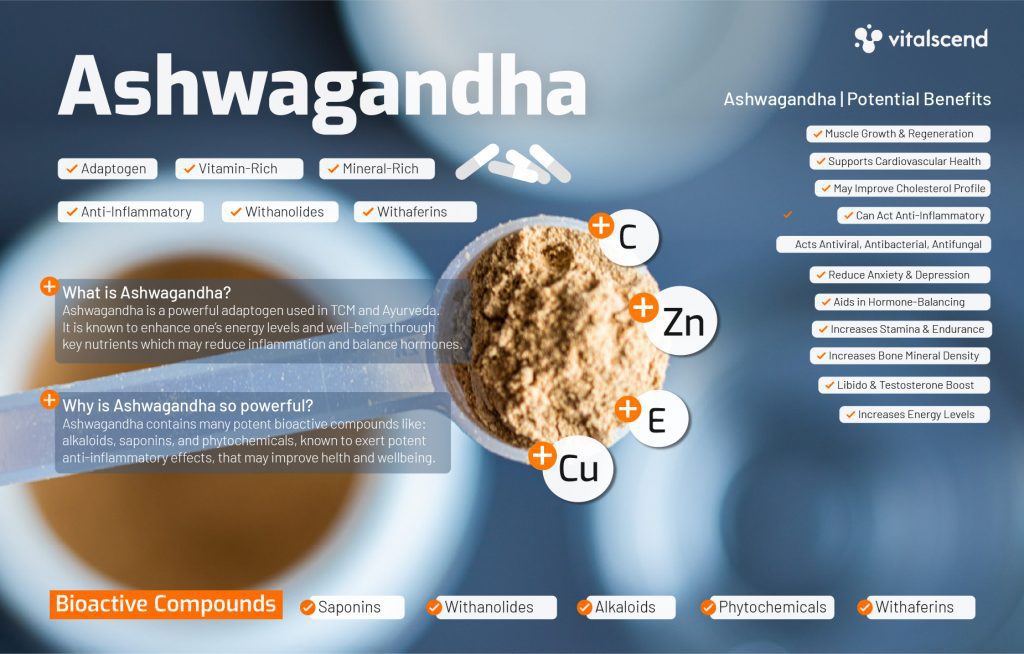
Nutritional profile
Ashwagandha’s anti-inflammatory effects are present due to its constituents. This plant contains different vitamins and minerals, the most important ones being: vitamin E, zinc, copper, and vitamin C, all of which possess some antioxidant properties and can reduce DNA damage.
Bioactive Compounds
Ashwagandha contains some bioactive components that include:
| Alkaloids | Saponins and Phytochemicals |
| isopelletierine | steroidal lactones |
| anaferine | withanolides |
| cuscohygrine | withaferins |
| anahygrine |
This plant is rich in Phytochemicals, which are secondary metabolites that help the plant to survive and pick up all the nutrients from around allowing it to grow stronger since it can’t move.
Ashwagandha Root Benefits
1. May Improve bone density and mineralization
Bone loss is a known problem, especially in women after menopause, due to lower estrogen levels. Osteoporosis can be developed in men, just not that common. Bone loss can be caused by genetics, overuse or nutritional deficiencies. It occurs when bone loss is higher than bone formation. How can ashwagandha help with this?
Ashwagandha contains iron, calcium, carotene, and Vitamin C which can enhance bone regeneration. Besides a rich nutritional profile, ashwagandha is known to decrease inflammation in bones and help joint arthritis, due to some antioxidants present in it that decrease inflammation. (2)
- In humans with damaged osteoarthritic cartilage matrics, it helped in 50% of the patients, having short-term statistically significant chondroprotective effects. (2)
- Ashwagandha was also shown to significantly increase levels of lipid peroxides and glycoproteins while depleting antioxidant status and bone collagen in arthritic animals. (3) It also helped reduce arthritis severity and improve functional recovery in arthritis rats. (4)
- Withania somnifera was shown to improve bone calcification in rats with calcium deficiency, suggesting it might be a potential agent to be considered in osteoporosis treatment. (5)
Extra research: Ashwagandha Withanolides on Bone Density
- Withaferin A (WFA) was isolated from ashwagandha’s leaves and was evaluated for its preventive effects in bone loss. WFA stimulated new bone formation and improved microarchitecture and biomechanical bone strength. (6)
- Withanolides like Withaferin A, are purified molecules that are constituents of Ashwagandha, which can exert many pharmacological activities. WFA was shown to exert positive effects by increasing osteoblast proliferation and differentiation, plus it increased expression of osteoblast-specific transcription factor and mineralization genes. While doing this WFA also reduced inflammation cytokines. (7)
- Supplementing with ashwagandha improved calcium and phosphate retention in tibia bone. It also exerted positive effects on bone mineralization. (8)
2. Potential Thyroid Hormone Balancing
Thyroid hormones regulate your metabolism and energy levels. Hypothyroid means low levels of T3, and T4 hormones associated with slow metabolism and inability to lose weight. It seems some adaptogens can work to balance out thyroid function.
Thyroid hormones regulate energy production, temperature, and metabolism. People with faster metabolism lose weight faster and burn more calories. Hence why people usually look to “boost their metabolism“
The thyroid gland is regulated by THS, a stimulating hormone, and THR, a releasing hormone, regulated by TH feedback and central modulation by nutrition signals like leptin and other peptides that regulate appetite. (9)
- Withania somnifera was shown to increase levels of T3 and T4 hormones by 41.5% and 19.6% respectively while decreasing levels of TSH by 17.5% in patients with subclinical hypothyroidism. (10)
As an adaptogen, ashwagandha is supposed to help with both under-active and overactive thyroid. However, since there isn’t enough research data to prove ashwagandha’s efficiency in treating hyperthyroidism, you must consult your doctor before using it, since it may cause even more active thyroid which can lead to thyrotoxicosis – an advanced form of hyperthyroidism. (11) Signs of an overactive thyroid are hair loss, skin issues, increased blood pressure, and heart rate.
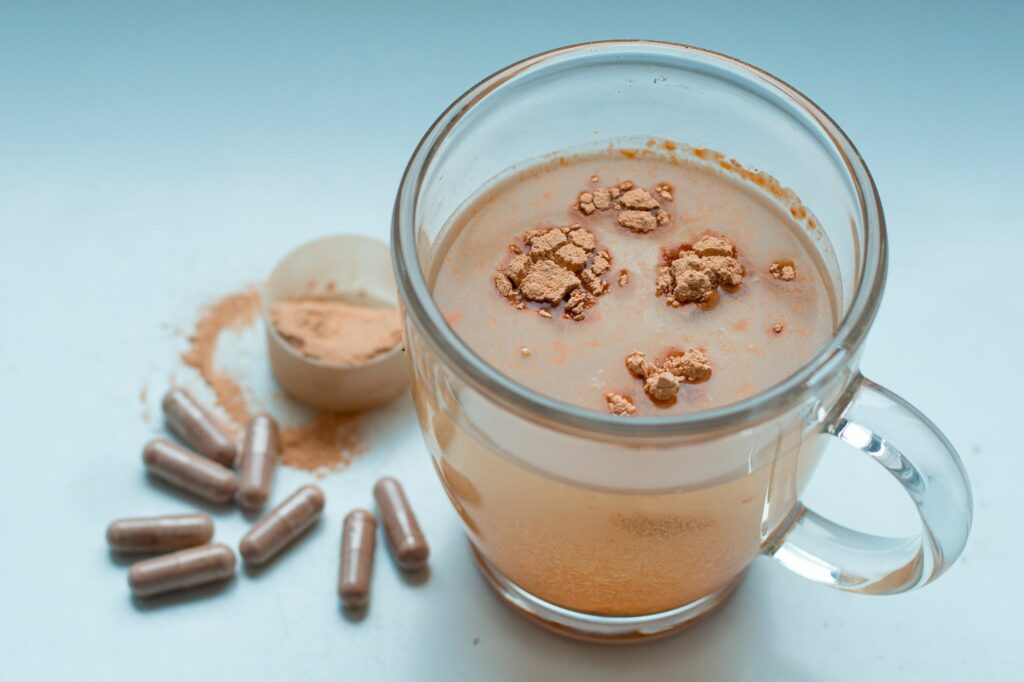
3. Lowers cortisol, stress & anxiety reduction
In situations of stress, your adrenal glands secrete the stress hormone known as cortisol in your blood, which can raise blood pressure and heart rate. Cortisol is not bad, it’s a signal for adaptation – chronic elevation of cortisol is bad.
Symptoms of high cortisol levels can be increased thirst, frequent urination, higher blood pressure, muscle weakness, and increased heart rate. Stress can also impair brain functions like memory and cognition, it can interfere with normal immune & cardiovascular system function and cause gastrointestinal problems. (12)
- Ashwagandha at 300 mg reduced all stress scales and serum cortisol in people with chronic stress, thus showing potential for improving stress resistance. (13)
- Through modulation of the HPA axis function, it showed improvement in stress questionnaires, reduced morning cortisol, and increased Testosterone levels (in males only). (14)
- Ashwagandha has the potential to lower serum cortisol levels and improve sleep quality – due to its ability to improve stress adaptation (response) (15)
4. Potential Anticancer properties
The bioactive component in Ashwagandha, known as Withaferin A may induce cell death or apoptosis in different types of tumor cells. (16) Bioactive molecules may exhibit anticarcinogenic effects by interrupting carcinogenesis. Some of the withanolides of ashwagandha may have therapeutic potential against cancer and protect from carcinogenesis.
This plant’s anticancer effect may be due to the activation of apoptotic pathways in cancer cells. Withania somnifera was also shown to inhibit angiogenesis – which is a process of facilitating tumor growth. (17) Ashwagandha may have some anti-cancer properties due to the presence of certain steroidal lactones, known as withanolides. One of the most important being Withaferin A. (18)
In Mice, Ashwagandha extract has shown some immuno-modulatory effects that significantly increased white blood cells and platelet counts. This makes the body more resilient in fighting diseases since the immune system function is improved. (19)
5. May improve muscle strength and muscle growth
One of the main benefits of using ashwagandha may be increased muscle growth and strength, which predominantly comes as a side effect of increased testosterone levels.
- Research shows Ashwagandha’s superpowers in improving athletic performance may lie in its Testosterone boosting abilities, which then acts on the Acetylcholine receptors. (20)
- Acetylcholine is a neurotransmitter that is used to activate muscles in the body. So if testosterone can initiate to increase in acetylcholine receptors, it is logical to improve strength gains. (21)
In another double-blind study for 8 weeks, ashwagandha supplementation at 300 mg twice daily resulted in an increase in bench-press and leg-extension results. On top of this, they also had increased muscle size in the arms and chest. It also reduces muscle damage and stabilized serum creatine kinase. What more? Increased testosterone levels and decreased fat percentage. (22)
For strength training adaptation, coupling progressive overload training and aqueous extract of ashwagandha for 12 weeks had favorable effects in 1RM squat and bench press results, increasing strength. This suggests that men can benefit from taking ashwagandha while doing some form of resistance training. (24)

6. May Enhance Sexual function, improve fertility, and boost Testosterone
When it comes to Libido and Strength, Testosterone is the key. Research shows positive effects from ashwagandha, especially in males.
Ashwagandha was tested for its effects on vitality, energy levels, and hormones in overweight aging males, this placebo-controlled, crossover study For 16 weeks period, men from 40 to 70 years of age, were given ashwagandha of a placebo. The ashwagandha group had significantly improved DHEA and Testosterone levels by 18% and 14.7% respectively. (25)
Great indicators of sexual health and semen quality are the levels of hormones such as LH, FSH, and Testosterone. Ashwagandha seemed to have positive effects on oxidative biomarkers, semen profile, and reproductive hormones in infertile men. Ashwagandha reduced oxidative stress and improved levels of LH, FSH, and testosterone. (26)
Extra Research: Ashwagandha on Libido, Fertility, and Hormones
- This meta-analysis, which reviewed Ashwagandha’s benefits in male infertility suggests that there is good evidence that supports the libido-enhancing effects of this plant. WS improved male sex drive due to improvements in oxidative biomarkers and serum hormonal profile. However, this systematic review recommends additional, further research with a larger sample size to prove those effects. (27)
- Ashwagandha has the potential to improve fertility, especially in patients with stress-related problems. Ashwagandha has anxiolytic effects, it lowers stress, which was shown positive for fertility. It increased partner pregnancy by 14%, at dosages of 5g per day for a period of 3 months. (28) By regulating reproductive hormones, and affecting their levels, plus the anti-inflammatory properties of this plant, ashwagandha was able to improve semen quality in infertile men. (29)
- In women, ashwagandha taken at dosages of 300mg twice daily resulted in improvement in arousal, lubrication, orgasm, and satisfying experience, which suggests the usage of this plant to improve sexual function. (30)
7. May Stabilize Sugar Levels, Help Manage Diabetes
Different studies show ashwagandha’s superpowers. Having multiple therapeutic benefits, these herbs have been used for their anti-inflammatory, anti-platelet, hypoglycemic, and cardioprotective benefits.
Research in rats showed the following Ashwagandha effects:
- Exhibit some antidiabetic and antihyperlipidemic activities in diabetic rats, meaning it can control or lower excessive sugar and fat accumulation in the blood. (31)
- Improved insulin resistance, IL-6, and TNG-α, and it inhibited the increase in glucose from inducing fructose, (32)
- Reduction of serum cholesterol levels, triglycerides, LDL & VLDL – showing its hypoglycemic, diuretic, and hypocholesterolemic agents. (33)
Ashwagandha can exert many positive effects on the body at dosages of 125mg and 250mg such as: reducing cortisol, stress & anxiety, and decreasing CRP, heart rate, and blood pressure. It was also shown to improve blood glucose fasting levels and lipid profiles. (34)
Extra Research: Ashwagandha on Diabetes, Insulin, and Glucose
- With anolides in Withania somnifera are the main components, crucial for ashwagandha’s anti-diabetic effects. Leaf extract performed better than root extract in increasing glucose uptake in a dose-dependent manner. This study has shown that a correlation between Withaferin A content and the anti-diabetic activity of this plant exists. (35)
- In diabetic rats, ashwagandha exerted highly anti-inflammatory effects, scavenging free radicals activity, and improved their glucose tolerance and insulin sensitivity. (36)
8. Improves endurance and stamina
Whether ashwagandha has short-term or long-term effects in improving cardiovascular endurance in humans is not well investigated and we need additional research on that topic. However, it was shown that ashwagandha had multiple positive effects in improving VO2max and time to exertion in running or cycling activities in healthy adults or even elite athletes.
In fifty healthy male/female adults ashwagandha was tested for its effects on cardiovascular endurance using a 20 minutes shuttle run test. The main measure was oxygen consumption and peak physical exertion, known as VO2max. Ashwagandha seemed to increase VO2max levels in 12 weeks, also, participants showed better results on the QOL score, which is a questionnaire for physical, and physiological health. (37)
When it comes to VO2max, one of the main factors associated with endurance, ashwagandha had a significant impact, along with improving time to exhaustion on the treadmill, which suggests its potential use in cardiovascular endurance. The interesting thing is this happened in elite athletes, forty Indian cyclists, suggesting its use in sports nutrition. (38)
9. Anti-viral, Antibacterial, Anti-fungal, and Anti-Parasitic activity
This plant was shown to have many ANTI-activities, so here is a quick recap.
In people with viral hepatitis, it was found that Livwin can be effective in treating this health problem. Livwin is a combination of more herbal remedies, one of which is ashwagandha. (39)
Antiviral superpowers of ashwagandha may help in tuberculosis treatment. In this study, ashwagandha helped to decrease cough, fever, dyspnea, and hemoptysis. (40) Treatment in Pulmonary tuberculosis, with the usage of ashwagandha and multi-herbal formulation, was investigated. Results have shown changed IgA and IgM patterns, improved body weight, and inflammation. (41)
Withania somnifera glycoprotein has some antimicrobial properties in fighting phytopathogenic fungi and bacteria, as well as some other antifungal activity. (42)
Disclaimer: The content on this Site is for informational purposes only, and it is NOT intended to give or replace medical advice. Make sure you consult your physician, doctor, or health professional before using any supplement, for its dosage, uses, precautions, and interactions.
Usage, Dosage, Interactions, Precautions
Ashwagandha has been used for many of its health-enhancing effects. It is a well-studied adaptogen, but still not been proven to treat any serious medical condition with strong evidence behind it.
One of the ashwagandha’s most potent usages that is shown to be effective is Stress. 300g daily after meal for 60 days seemed to improve the symptoms of stress. This is an adaptogenic herb, which can act to balance out your hormones, and even though it is a stressor in itself, it enhances your body’s ability to build resilience to stress so you handle stress differently. (43)
Uses
Side Effects
Precautions
Drug Interaction
Dosage
Uses of ashwagandha for whom there is not sufficient evidence are:
- Anxiety
- Immune System Function
- Bipolar disorder
- Fatigue
- Liver Problems
- Hypothyroidism
- Infertility & Erectile dysfunction
- OCD of Obsessive-compulsive disorder
- Parkinson’s disease
- Fibromyalgia
- Ulceration
- Tuberculosis
- Inflammation
- Diabetes
- Athletic Performance
- Osteoarthritis and rheumatoid arthritis
Ashwagandha is possibly safe to take orally, short-term. Some of the mild side effects that can appear with taking higher dosages of ashwagandha are stomach upset, diarrhea, and vomiting.
- Pregnant and breastfeeding women should not use ashwagandha, since it may be unsafe, being linked to miscarriages.
- Diabetics should also stay away since ashwagandha can lower blood sugar levels and interfere with diabetes medications.
- People with stomach ulcers should also avoid them since ashwagandha can cause stomach upset and gastrointestinal irritation.
- People with high or low blood pressure must consult with their doctor first, since ashwagandha has been effective in lowering blood pressure it might as well interact with some medications, especially with medications for lowering blood pressure.
- For people with auto-immune diseases such as multiple sclerosis, lupus or rheumatoid arthritis is best to avoid ashwagandha, since it can activate the immune system.
- In people who have scheduled their surgery, it is best to avoid it two weeks before, since it may interfere with anesthesia or other medications related to surgery.
- For those with a thyroid condition, it is best to speak with your doctor, because ashwagandha might increase thyroid levels.
According to WebMD, Ashwagandha can interact (44) with sedatives like Benzodiazepines and CNS depressants, which may cause too much sleepiness.
- Immunosuppressants or medication that can suppress the immune system can interfere with ashwagandha since it can increase the immune system.
- Minor interaction can also be found in thyroid hormones in combination with ashwagandha, since taking both can drastically increase one’s thyroid levels.
- There is no recommended dosage for ashwagandha, however, the best thing is to read the product labels and follow a safe pattern of use.
- The studies in this article have mostly used ashwagandha at dosages of 300 mg twice daily, or 500 mg capsule, and also there were examples of using certain withanolide extract or some tincture or cream that is made through combining different herbs and plants, part of which was Ashwagandha.
Research Limitations?
*Studies have some limitations, important to evaluate the validity of their results. Here’s a highlight of some and NOT ALL studies (and limitation), shown in this article, for context.
- Research done in animal models, can’t be completely replicated in humans.
- Studies which include subjective results collected from self-reported questionnaires.
- Studies with short duration only showcase acute effects *8days
- In-vitro research done in animal models *arthritic animals, Sprague-Dawley rats, female Balb/c mice.
- Weak control of external and internal factors *stress, diet, neurotransmitters, neuroendocrine mediators, peptides.
- Participants may have altered other fatigue-lowering changes *weak control of external factors.
- Relatively small sample size to establish strong or statistically significant results *questioned validity.
- In need of larger, wider studies with cross-section population, to asses long-term Ashwagandha effects.
- Study involving specific (homogenous) population makes it hard to generalize *untrained, moderately young, males.
- Some results evaluated through self-reported questionnaires, which are subjective.
- Recruited participants through social media *biased findings.
Conclusion
Ashwagandha is one of the most widely used and popular adaptogens. It has been shown that this adaptogen comes with some health benefits such as stress adaptation, muscle growth, increased libido, and metabolism boost. Ashwagandha has a rich nutritional profile with different vitamins, minerals, and bioactive compounds.
Frequently Asked Questions
Is Ashwagandha a hormone-balancing adaptogen?
As many adaptogens, ashwagandha is also considered a hormone-balancing adaptogen. Adaptogens adapt to one’s body and needs. In theory, they’ll increase what we lack and reduce what we have too much of. While this is theoretically true, hormone balancing might be a tricky subject and you definitely need to consult your doctor for any hormone sensitive issues. Otherwise ashwagandha is known to affect thyroid hormone levels, and potentially boost metabolism.
What are the benefits of Ashwagandha root?
Supplementing with ashwagandha may come with the following health benefits:
- increased libido and sexual function
- increased bone mineral density
- muscle growth and regeneration
- improved sleep
- reduced stress and anxiety symptoms
- improved blood flow and circulation
- faster metabolism
- potent antioxidants, anti-inflammatory
- cardiovascular health
- potential antidiabetic effects, improved insulin resistance
- increased stamina, exercise performance
- antiviral, antibacterial and antifungal
Does Ashwagandha cause weight gain?
Although people have reported weight gain side-effects related to ashwagandha supplementation, research is not so clear in this area. Ashwagandha may result in small weight-gain which comes as a result of muscle increase and increase in bone mineral density. But many people ask this question, if you gain significant amount of fat, due to ashwagandha supplementation, the short answer is no.
Can ashwagandha increase bone density?
Research shows that there may be some potential of ashwagandha aiding in bone growth and regeneration. Its nutrient-rich profile loaded with carotene, calcium and vitamin C are is quite bone-friendly. Ashwagandha may also reduce bone inflammation and joint arthritis pain. A compound called Withaferin A (WFA) has been shown to stimulate bone formation and increase bone strength.
Is ashwagandha good for boosting testosterone?
One of the most potent effects of ashwagandha is its potential to boost libido. It comes as a side effect of elevated DHEA and Testosterone. It may also reduce oxidative stress, and improve levels of LH and FSH. Research in women showed better lubrication, satisfaction, arousal values too.

